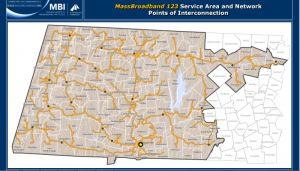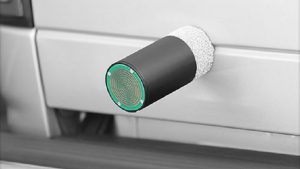The states of Georgia, Illinois, Tennessee, Massachusetts, and Maryland have all discussed bills that restrict automated vehicle testing to motor vehicle manufacturers, which puts technology companies like Uber and Waymo at a disadvantage.
The Massachusetts Technology Collaborative’s program to improve the state’s broadband connectivity will continue despite its contractor’s sudden declaration of bankruptcy, according Brian Noyes, Mass Tech’s director of research and communications.
The Commonwealth of Massachusetts gave a $75,000 grant to MassRobotics, a company that encourages robotics startups, at the opening of the company’s collaborative workspace on Feb. 28.
San Francisco is encouraging civic involvement through its Adopt a Drain SF program, where residents become responsible for one of the roughly 25,000 storm drains and catch basins that the city maintains.
Following public backlash, the Boston Police Department (BPD) has scrapped plans to purchase social media monitoring technology.
Civil rights advocates flooded a City Council hearing to protest the Boston Police Department’s plan to buy $1.4 million in social media monitoring software. Advocates questioned police promises to respect citizen privacy, as well as whether the technology can actually detect threats.
A group of policy-makers, health care providers, and first responders recommended that the state of Nevada create a data center with information on opioid prescriptions.
The police department in Methuen, Mass., hopes to avoid dangerous and potentially deadly high-speed car chases with GPS darts.
Care New England Health System settled violations of the Health Insurance Portability and Accountability Act of 1996 Privacy and Security Rules with a payment of $400,000 and submitting a comprehensive action plan.
The Massachusetts Turnpike is one of the latest roads to begin to feature all-automated toll collection systems, which cause privacy concerns due to the resulting databases of license plate photographs.











